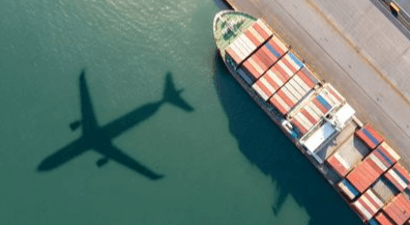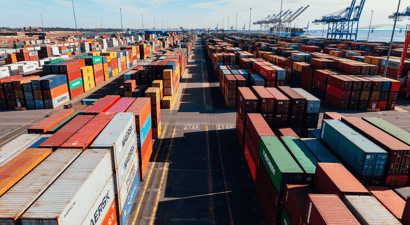Renewed Impetus to Promote a Policy of Cargo Reservation to South African Registered Ships
By Johan Swart, Partner and Pauline Kumlehn, Senior Associate in the International Transport, Trade & Energy Department based in Cape Town
The launch of 'Operation Phakisa' in October 2014 which saw the government unveiling its stated policy to unlock the economic potential of South Africa's oceans has led to many interesting developments over the past year, not the least of which is the renewed impetus to introduce cargo reservation to South African registered ships, or 'cabotage'.
The concept of cabotage, which term can also be used in the context of air, rail or other transport services, as a maritime term refers to the reservation of coastal trade to indigenous shipping.
Concomitant with the concept of cabotage is the need to expand the South African fleet. Up until the past month, and contrary to the position in the 1980s, no cargo or passenger vessels of any significance were to be found on the South African Ship Register.
At a recent Operation Phakisa meeting hosted by SAMSA earlier this month in which the agenda was to discuss the promotion and support of the South African Ship Register, the policy in respect of cabotage was expressed by SAMSA representatives as follows:
- To reserve all cargo carried between ports on the South African coast to South African registered vessels (viz. cabotage);
- To reserve 40% of all cargo carried out of or into South Africa for carriage on South African registered vessels;
- To recognise the right of other countries in the SADC and the African continent to similarly reserve 40% of all cargo carried out of or into those countries for carriage on their national lines.
Cabotage laws in the maritime sector are nothing new, as is evident from legislation enacted in other countries, for instance, the often mentioned Merchant Marine Act or so-called 'Jones Act' enacted in the United States in 1920. In essence, the Jones Act reserves the carriage of US domestic cargo to vessels constructed in the US, crewed by US mariners, owned by US owners and flying the US flag. Various other trading nations, including African counterparts such as Nigeria have enacted cabotage legislation, with varied degrees of success.
Recent weeks has in fact seen the issue of cabotage come under the spotlight in other countries. India, for example, announced this month its decision to relax its cabotage laws for the next five years in the stated hope of boosting trade and decongesting its roads and railways. Interestingly, the concession afforded will permit foreign operators of certain specialized vessels (such as Roll-On Roll-Off, Hybrid RoRo, Roll-On Roll-Off Passenger, Pure Car Carriers, Pure Car and Truck Carriers, LNG vessels and Over-Dimensional Cargo or Project Cargo Carriers) to transport cargo between ports along the Indian coast. As noted by the Indian Ministry, these special vessels "are in short supply in the country, but since they cater to specific classes of cargo, their availability will make it possible to shift cargo movement for these commodities from road and rail to coastal shipping." In addition to economic factors, the move is also anticipated to promote a more green mode of transportation, particularly as the availability of RoRo vessels are expected to reduce carbon emissions.
In Nigeria concern has over the past week been raised over the extent to which its maritime authority (the Nigerian Maritime Administration and Safety Agency) is monitoring the implementation of its Coastal and Inland Shipping (Cabotage) Act of 2003. Another factor noted by the country's erstwhile Minister of Interior and Master Mariner (Capt Emmanuel Ihenacho) cites limited access to funding for local companies as causative of the problems experienced.
Much can therefore be learnt from countries which have already implemented a cabotage policy.
Time will tell whether this initiative will deliver positive results. It is suggested that the successful implementation of cabotage laws in South Africa will require a multifaceted approach that includes proactive measures to address related issues, most notably the need for fiscal concessions to increase the attractiveness of vessels flying under the South African flag.
A positive development as noted at recent SAMSA workshops, is that the drive to introduce tonnage to the Ship Register has now produced the first tangible results with two Cape size bulkers, the CAPE ORCHID and CAPE ENTERPRISE, recently entered onto the South African register.





